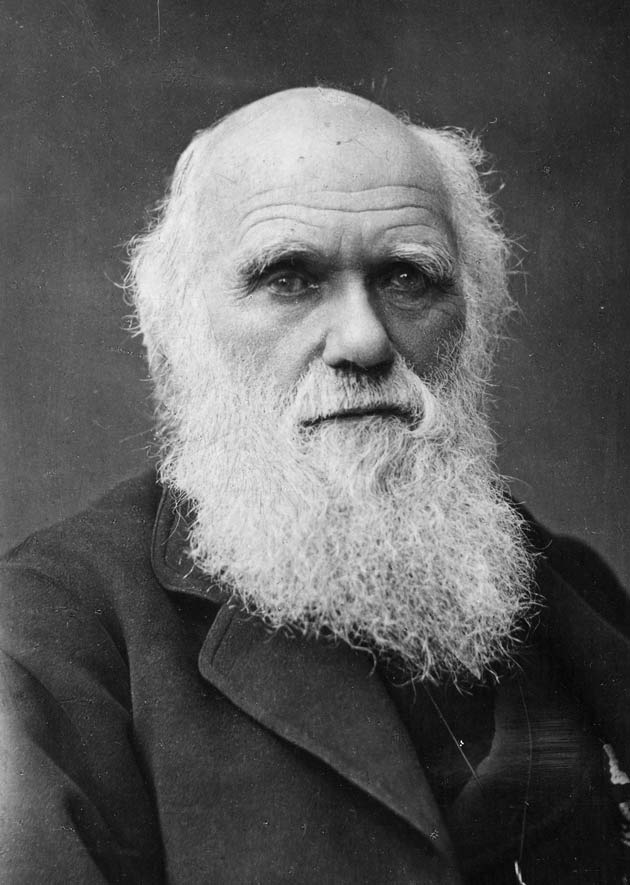Belief in Evolution Boils Down to a Gut Feeling

Get the world’s most fascinating discoveries delivered straight to your inbox.
You are now subscribed
Your newsletter sign-up was successful
Want to add more newsletters?

Delivered Daily
Daily Newsletter
Sign up for the latest discoveries, groundbreaking research and fascinating breakthroughs that impact you and the wider world direct to your inbox.

Once a week
Life's Little Mysteries
Feed your curiosity with an exclusive mystery every week, solved with science and delivered direct to your inbox before it's seen anywhere else.

Once a week
How It Works
Sign up to our free science & technology newsletter for your weekly fix of fascinating articles, quick quizzes, amazing images, and more

Delivered daily
Space.com Newsletter
Breaking space news, the latest updates on rocket launches, skywatching events and more!

Once a month
Watch This Space
Sign up to our monthly entertainment newsletter to keep up with all our coverage of the latest sci-fi and space movies, tv shows, games and books.

Once a week
Night Sky This Week
Discover this week's must-see night sky events, moon phases, and stunning astrophotos. Sign up for our skywatching newsletter and explore the universe with us!
Join the club
Get full access to premium articles, exclusive features and a growing list of member rewards.
Gut feelings may trump good old-fashioned facts, and even religious beliefs, when it comes to accepting the theory of evolution, new research suggests.
"The whole idea behind acceptance of evolutionhas been the assumption that if people understood it, if they really knew it, they would see the logic and accept it," study co-author David Haury, an associate professor of education at Ohio State University, said in a statement.
But, he noted, research on the matter has been inconsistent. While one study would find a strong relationship between knowledge level and acceptance, another would not. Likewise, studies have contradicted each other on the relationship between religious identity and acceptance of evolution, he said.
Haury and his colleagues figured that another unexplored factor must be at work. Previous research has shown that the human brain doesn't judge the merits of an idea solely on logic, but also on how intrinsically true the idea feels: Could this process of intuitive reasoning help explain why some people are more accepting of evolution than others?
To find out, the researchers recruited 124 pre-service biology teachers at different stages in a standard teacher preparation program at two Korean universities. They chose to look at students in Korea because teacher preparation programs in the country are quite standardized. "In Korea, people all take the same classes over the same time period and are all about the same age, so it takes out a lot of extraneous factors," Haury explained.
Moreover, about half of Koreans don't identify themselves as belonging to any particular religion, he said. In the U.S., only about 16 percent of people are religiously unaffiliated, according to the Pew Research Center. (Religion can be a reason for not accepting evolution, as some think it goes against a god as a creator.)
The researchers first asked the students a series of questions to measure their overall acceptance of evolution, teasing out whether they generally believed the main concept sand scientific findings that define the theory of evolution. Next, they tested the students on their knowledge of evolutionary science with questions about various processes, such as natural selection. For each question, the students wrote down how certain they felt about the correctness of their answers — an indicator of their gut feelings.
Get the world’s most fascinating discoveries delivered straight to your inbox.
They found that intuition had a significant impact on what the students accepted, no matter how much they knew and regardless of their religious beliefs. Even students with a greater knowledge of evolutionary facts weren't more likely to accept the theory unless they also had a strong gut feeling about the facts, the results showed.
The study has important implications for the teaching of evolution, the researchers said. Informing students about this conflict between intuition and logic may help them judge ideas on their merits.
"Educationally, we think that's a place to start," Haury said. "It's a concrete way to show them, 'Look, you can be fooled and make a bad decision, because you just can't deny your gut.'"
The study was published in the January 2012 issue of Journal of Research in Science Teaching.
 Live Science Plus
Live Science Plus











